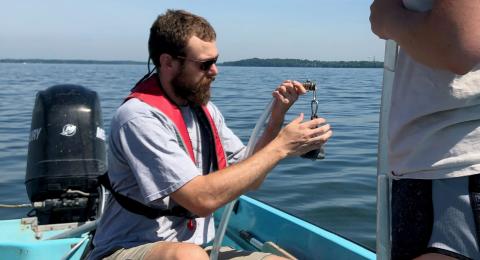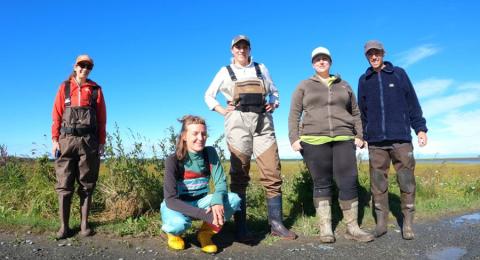Graduate Studies
ESRC graduate students collaborate closely with ESRC faculty in pursuit of a Master's degree or a Ph.D. ESRC graduate students are expected to fully engage in ESRC research projects, most of which are funded by grants from federal agencies such as the National Science Foundation, NASA, and the National Oceanographic and Atmospheric Administration. In addition to writing a thesis, ESRC graduate students routinely publish their research findings in high-impact scientific journals.
Students pursing a Master's degree with ERSC faculty mentors have several options. Our Master's students commonly enroll in the graduate program in the Department of Natural Resources and the Environment or the Department of Earth Sciences. The Department of Natural Resources and the Environment provides degree specializations in Environmental Conservation, Environmental Economics, Forestry, Soil and Water Resource Management, and Wildlife and Conservation Biology. The Department of Earth Sciences offers Master of Science degrees in Geology, Hydrology, Oceanography, Ocean Mapping, and Geochemical Systems.
Students pursuing a Ph.D. degree with ESRC faculty mentors enroll in the Natural Resources and Earth Systems Science (NRESS) Ph.D. Program (one of the largest Ph.D. program at UNH with approximately 60 Ph.D. students enrolled at any given time) and choose a degree in Natural Resources and Environmental Studies (NRES) or Earth and Environmental Sciences (EES).
Undergraduate Opportunities
Undergraduate students are engaged in research projects working collaboratively with ESRC graduate students and faculty. If you are interested in enhancing your education by joining an active research project, please peruse our current research projects and contact one of research team members. You can also submit a proposal to the Hamel Center for Undergraduate Research requesting funds to support your research project. Most of our undergraduate researchers also present their results at the UNH Undergraduate Research Conference.




